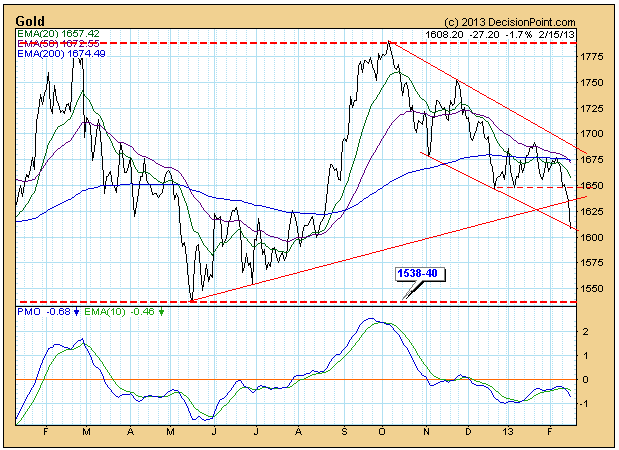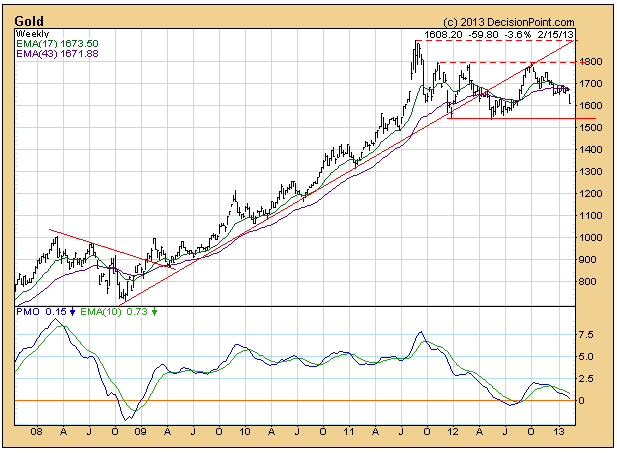Downward pressure in gold prices continued as very large funds liquidated substantial portions of their positions in the gold ETF (GLD). (See article.) Naturally, we need to look at the charts to give this story some context. (Charts were made before the close.)
The daily chart shows that price has reached the bottom of the declining trend channel, the top of which is drawn from the October high. This was something we thought likely because price failed to reach the top of the channel before it started down again. Another important event that happened today was that the 50-EMA crossed down through the 200-EMA, signalling nominally that gold is in a long-term bear market. The same type of EMA crossover occurred back in May 2012, so, obviously, the "long-term" nature of the signal is not carved in stone, but it does set the tone for the gold market.
To more accurately assess the long-term picture we need to zoom back to the weekly chart. Here we see the +170% advance from the 2008 low. After the top in 2011, prices have been moving in a horizontal range between 1540 and 1800, in what we would call a high-level consolidation. This is also known as a continuation pattern, which implies that prices will eventually break out of the consolidation and continue higher. That is a nice scenario for gold bulls, but first it appears that prices will have to retest the support at 1540 at least one more time. Obviously, that is a critical support level.
The most striking aspect of gold's behavior since the 2011 top, is that it is not following "the script", which is that the Fed printing press will drive gold prices higher. With the Fed printing money at unprecedented rates, why, we must ask, have gold prices stalled for almost a year-and-a-half? When our assumptions are not confirmed by actual price movement, we must reassess our assumptions. A possible alternative would be that the Fed's actions are not causing inflation, but deflation, at least in that part of the economy that affects gold prices. To better understand how this could be true, I recommend that you read the Quarterly Review and Outlook, Fourth Quarter 2012, by Dr. Lacy Hunt of Hoisington Investment Management.
Conclusion: Gold could be in the process of consolidating a massive up move, and it is currently headed toward a retest of the bottom of the consolidation range at 1540. Failure of that support level would suggest that assumptions about the Fed causing inflation (and an increase in gold prices) should be questioned.


